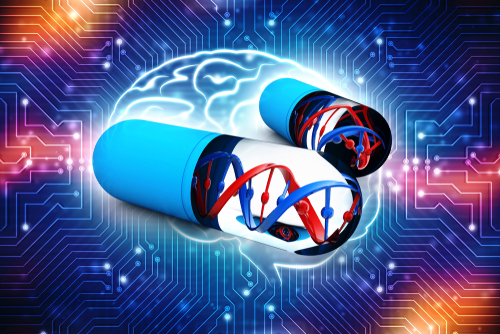Advances in technology and a better understanding of biology have paved the way toward making gene therapy a potential treatment strategy for rare genetic disorders, including neurometabolic diseases like X‐linked adrenoleukodystrophy (X‐ALD), researchers say.
Valentina Poletti, PhD, in collaboration with Alessandra Biffi, MD, both from the Dana-Farber/Boston Children’s Cancer and Blood Disorders Center in Boston, reviewed the latest advances in the development of gene-based treatment approaches for X-ALD and other inherited neurometabolic diseases.
Their findings are detailed in “Gene‐based approaches to inherited neurometabolic diseases,” a study published in the journal Human Gene Therapy.
A rare genetic brain disorder, X‐ALD is caused by mutations in the ABCD1 gene, and consequent low levels of its encoded adrenoleukodystrophy protein (ALDP). The loss of ALDP results in the accumulation of long-chain fatty molecules inside cells, which should be destroyed instead.
X-ALD manifests by a wide spectrum of symptoms, since these fatty molecules can accumulate in several body tissues. However, they are particularly toxic for cells of the central nervous system, causing the loss of myelin, which is the protective coating surrounding neurons.
Allogeneic hematopoietic stem/progenitor cells transplant (HSCT) is the current standard of care for patients with early-stage cerebral X-ALD, the most severe form of X‐ALD.
According to the review, the first report demonstrating the potential of HSCT to treat X-ALD is from 1990. The cells were collected from a healthy volunteer — called an allogeneic transplant — and infused into a boy with cerebral X-ALD. The treatment was shown to have a beneficial effect, arresting nerve cell degeneration and disease progression.
This cell-based treatment approach, however, had previously failed in a patient with advanced stage cerebral X-ALD, suggesting that the therapy is more effective in the early stages of the disease.
“If performed when the neurological and neuropsychological deficits are still minimal, and the demyelination [loss of myelin] is limited, [HSCT] can arrest the cerebral demyelination and disease progression providing a stable clinical efficacy,” the researchers said.
HSCT is believed to help restore the normal activity of the immune and structural cells of the brain — including microglia, cells important to maintain the health of the central nervous system. That results in reduced neuroinflammation and promotes a neuroprotective environment.
Patients undergoing HSCT may, however, only start to experience the beneficial effects of the treatment approximately 12 to 18 months later, according to the team. They said this delay is possibly due to the slow replacement of the resident brain cells by the donor‐derived transplanted cells.
Researchers more recently have developed a new approach to treat X-ALD that uses engineered stem/progenitor cells that carry the healthy variant of the ABCD1 gene. The new strategy aims to overcome the core genetic problem behind this rare disease.
This gene therapy was administrated to two boys with cerebral X-ALD, resulting in stable disease — without signs of disease progression or cerebral demyelination — for at least three years of follow-up. These positive clinical results supported the launch of additional studies to improve cell-based gene therapies for X-ALD.
Bluebird Bio is currently developing a cell-based therapy, called Lenti‐D, which uses stem cells collected from a patient’s bone marrow. Those cells are then modified in the lab so that they carry a non-mutated version of the ABCD1 gene. These genetically modified stem cells are then infused back into the patient, where they can differentiate into other mature, functional cells.
In a Phase 2/3 trial (NCT01896102), Lenti-D was shown to safely help 30 cerebral X-ALD patients maintain their neurological function score. Additional assessments also showed that Lenti-D could help prevent further brain damage in most patients within 12–24 months after treatment.
Bluebird Bio recently launched a new Phase 3 trial (NCT03852498) to continue to explore the impact and efficacy of Lenti-D as a treatment for boys with cerebral X-ALD. The trial is currently recruiting participants in the U.S., France, Italy and the U.K. For more information, please visit this link.
“Overall, these studies testify the therapeutic value of hematopoietic stem/progenitor cells‐based ex vivo [gene therapy in childhood cerebral ALD], and encourage its transferability to other similar neurodegenerative diseases,” the researchers said.
This review documents “some of the dramatic clinical benefits” that gene therapy has brought to patients with X-ALD and other neurometabolic disorders, Terence R. Flotte, MD, editor-in-chief of Human Gene Therapy, said in a press release.
“The breakthrough was the insight to use genetic alteration of bone marrow stem cells to cure diseases within the brain, using microglia as the vehicle,” Flotte said. “This platform has brought hope to many families.”


